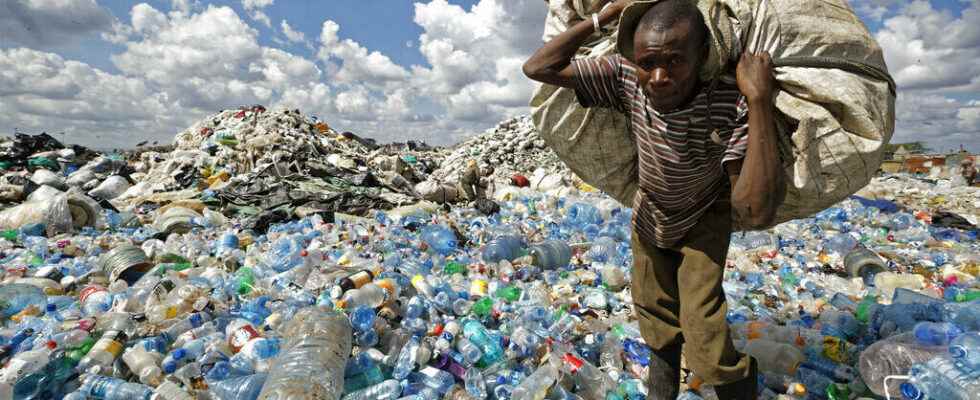In Nairobi, the UN adopted this Wednesday, March 2, the principle of an international treaty ” legally binding campaign against plastic pollution, a breakthrough described as historic in the fight against this scourge that threatens global biodiversity.
The United Nations Environment Assembly, the highest international body on these subjects, meeting in the Kenyan capital Nairobi, adopted a motion creating an “Intergovernmental Negotiating Committee” responsible for developing a text by 2024. ” I see no objections, it is so decided », Launched the Norwegian Minister for the Environment Espen Barth Eide, who chaired the Assembly, to applause.
► To read also: Plastic pollution: “The situation in Kenya is critical”, according to Hamisa Zaja
The negotiating mandate covers a very broad spectrum of subjects taking into account the entire life cycle of plastic “, of the production and use” sustainable » to waste management, reuse or recycling. It includes land and sea pollution, and both plastics and microplastics, caused by their use or the degradation of waste from these products made from fossil hydrocarbons and responsible according to the OECD for nearly 3.5% of greenhouse gas emissions responsible for global warming.
Encourage action by all stakeholders
Negotiations should also focus on setting objectives and defining measures that can be binding ” Where ” volunteers ” at the World level. The treaty may also provide for national control plans, while taking into account the ” circumstances specific to different countries. The mandate also provides for the development of mechanisms for monitoring the implementation of the objectives as well as financing for poor countries.
In Gabon, bottles recovered and transformed into everyday objects
The text further recommends “encouraging action by all stakeholders, including the private sector”, in a sector worth billions. The committee should begin its work in the second half of 2022, after an initial preparatory meeting, with “ the ambition to complete its work by the end of 2024 “.
Some 460 million tons of plastics were produced in 2019 worldwide, generating 353 million tons of waste, of which less than 10% is currently recycled and 22% is abandoned in uncontrolled landfills, burned in the open air or dumped in the environment, according to the latest OECD estimates.
► On the Dandora landfill site, located east of Nairobi, one of the largest in Africa.
Most plastics could be recycled if handled correctly.
In Nairobi, the Dandora landfill
(With AFP)
